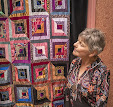Biography
BIOGRAPHY
These are the Biographies I read in 2006.
These are the Biographies I read in 2006.
Claire Tomalin: Samuel Pepys. The Unequalled Self (Excellent. Biographical writing of highest standard with a refreshingly different approach to presentation of material which has already been much covered; instead of following a chronological line, Tomalin present Pepys in different aspects of his life: Family/Work/Entertainment etc. etc.
Richard Holmes: Coleridge – Vol.I: Early Visions. Vol.II: Darker Reflections
Hilary Spurling: Matisse. The Master (Two Volumes) (One of the most engrossing biographies I’ve read in recent years. In particular, all post-feminists should read this book for the study it contains of the psychological development of Madame Matisse! Her life could be compared with that of Alice James (H.J.’s sister) and with that of generations of ladies who in their repression and sense of worthlessness resorted to ‘the vapours’ !)
Geoffrey Wainwright: Lucy Duff Gordon (Interesting to compare Lucy with the above-mentioned; she showed that it was possible to develop her (formidable) intellect and to lead an independent life – but she did have the benefit of being educated by a similarly energetic and enlightened mother. Also, the very moving story of her self-exile, and ultimately death, in Egypt after she was diagnosed with tuberculosis.
Molly Hughes: A London Childhood of the 1870s (Persephone)(Autobiographical memoir)
Philip Callow: Lost Earth. A Life of Cezanne (I thought this was a very dull and ploddy book which didn’t do the subject justice.)
Richard Holmes: Coleridge – Vol.I: Early Visions. Vol.II: Darker Reflections
Hilary Spurling: Matisse. The Master (Two Volumes) (One of the most engrossing biographies I’ve read in recent years. In particular, all post-feminists should read this book for the study it contains of the psychological development of Madame Matisse! Her life could be compared with that of Alice James (H.J.’s sister) and with that of generations of ladies who in their repression and sense of worthlessness resorted to ‘the vapours’ !)
Geoffrey Wainwright: Lucy Duff Gordon (Interesting to compare Lucy with the above-mentioned; she showed that it was possible to develop her (formidable) intellect and to lead an independent life – but she did have the benefit of being educated by a similarly energetic and enlightened mother. Also, the very moving story of her self-exile, and ultimately death, in Egypt after she was diagnosed with tuberculosis.
Molly Hughes: A London Childhood of the 1870s (Persephone)(Autobiographical memoir)
Philip Callow: Lost Earth. A Life of Cezanne (I thought this was a very dull and ploddy book which didn’t do the subject justice.)


4 comments:
hello celia
your Proust blogs are very interesting, I can see your interests, loves and preoccupations go together though, I recently read something by a French philosopher talking about the connection between the James' analyses of consciousness and the American traditions of quilting and patch-work, though I haven't read them really (Henry James is also daunting, and to be honest I don't really like reading novels!, perhaps I'm a little 'aspergeric' and I like to arrive at things intellectually or very directly through music or art). It's an fascinating contrast between these loosely connected ideas about consciousness and the Freudian bag, key to a major division in 20thCentury thinking perhaps. Discuss:)
Hello, Citizen,
I'd be fascinated to know who this French philosopher is - and what he says about James and American patchwork and quilting. I can see it now: title of my submission to the American Quilt Study Group will be Henry james and the American Quilting Tradition.!:) I promise you, the intensely earnest and academic quilts scholars (of whom there are too many in America) would absolutely love it!
But seriously, I do enjoy reading novels (next Reading List coming up - you can skip that) and particularly enjoy the people like James, and Proust for that matter, who make so much effort to get into the minds of their characters and so reveal something of the awesome complexity of human thought and motivations. Of course, I also read novels as pure escapism and fun.
Yes, after Freud things could never go on as they had done, but who has definitively laid out and illustrated the effect on twentieth century writers of his thought? I'l bet there are loads of academics out there who've pondered precisely this point - it's just that I haven't come across them.
hello Celia
the essay I was thinking of can be found if you google the author's name 'David Lapoujade' and 'Pli 9' the journal it is published in, it's philosophical stuff but he uses the idea of patchwork as metaphor/image in an interesting way about William James, the end I think goes a little off course, the capitalism bit. Also the essay by Deleuze he quotes uses this image too.
Adam Phillips has written an excellant essay on Proust and Freud in one of his earlier books - On Tickling..." I think, where he describes what a Proustian psychoanlysis could be, it's v. interesting
Thnaks for these pointers. I shall go off and investigate and report back!
I've always liked the idea of 'patchwork as metaphor' but there are a few novels (all ghastly and sentimental) which try to use the patchwork quilt as a metaphor for life which really puts me off. That said, there IS a more interesting side to it, which you're helping me to explore.
Also, I'm working on what I hope will be a book relating American history as memorialised in the names of quilt and patchwork patterns. Of course, some aspects of Am. history are more easily dealt with like this than others! For example, lots of patterns memorialise Henry Clay ('The Great Pacificator'), no problem there. But explaining the provenance of the pattern named Sherman's March is more problematical - history a bit on the heavy side for my likely readers, mayhap!
Post a Comment